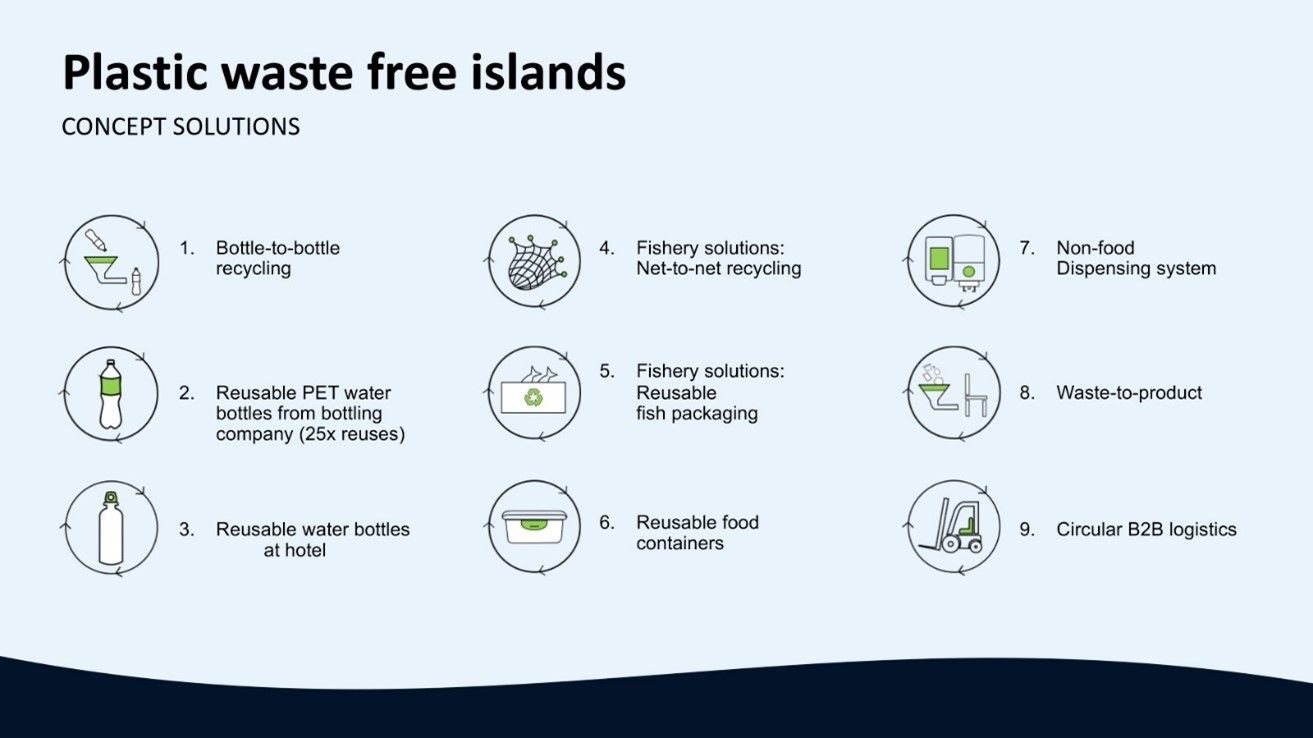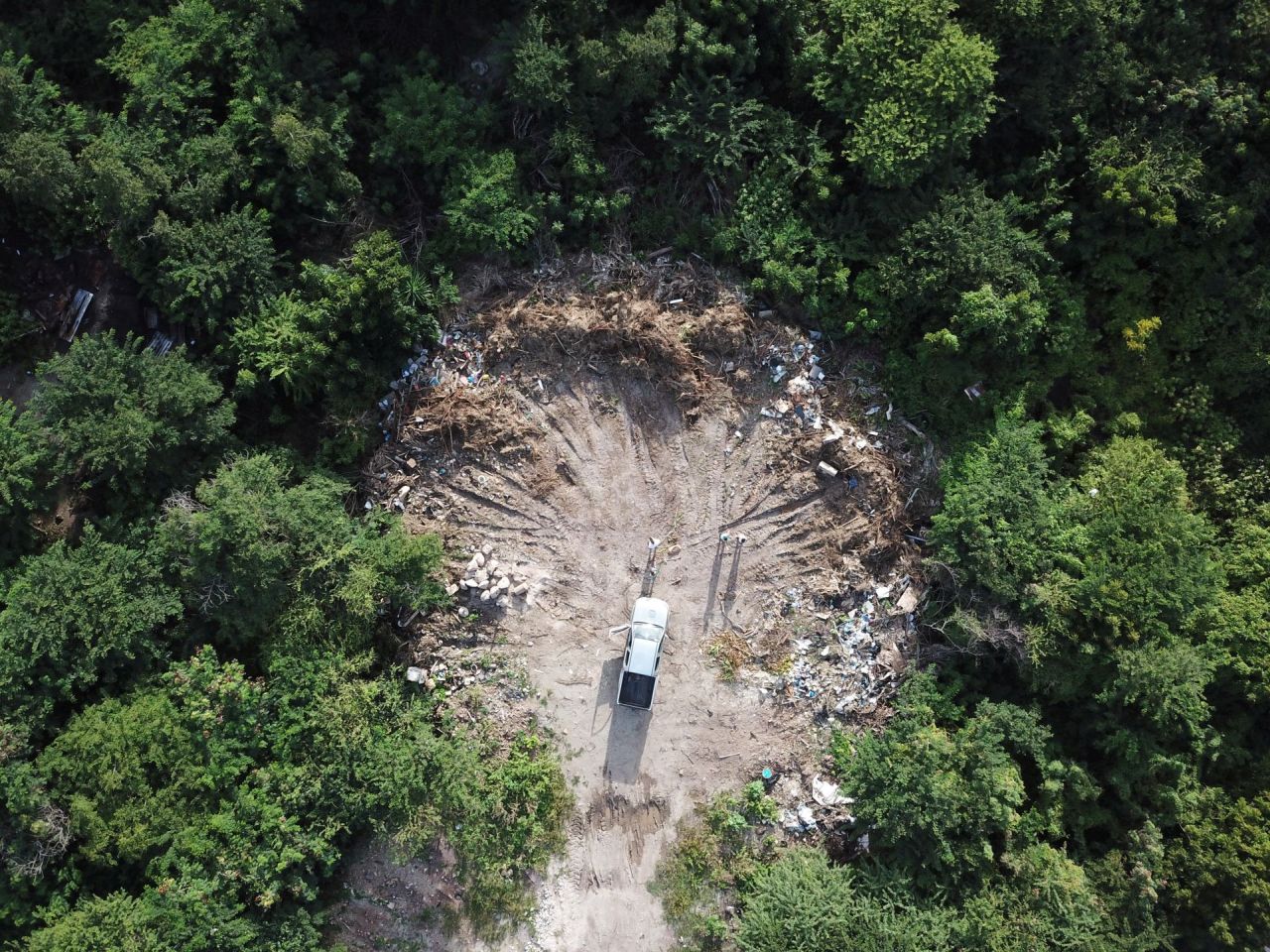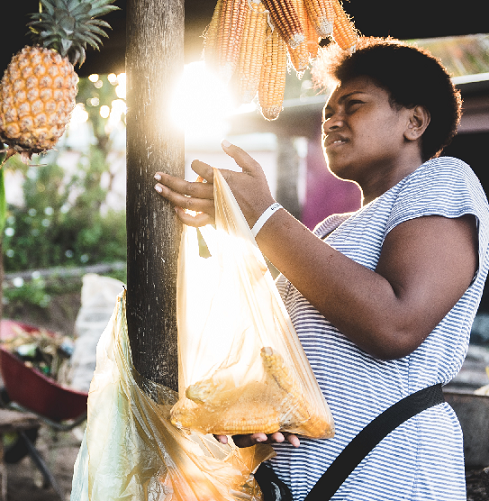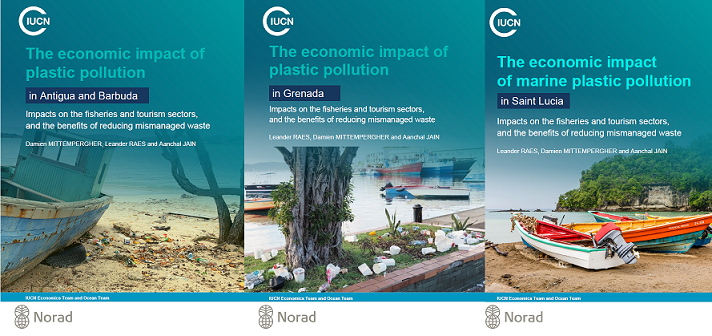From waste to product: the legacy of the Plastic Waste Free Islands (PWFI) Project in addressing plastic waste leakage
The Plastic Waste Free Islands (PWFI) Project, a four-year global initiative, comes to an end leaving important contributions by promoting island circular economy and demonstrating effective, quantifiable solutions to address plastic waste leakage in Small Island Developing States (SIDS).
The Caribbean region is an important biodiversity hotspot due to the high endemism on each island[1]. Plastics and plastic pollutants are dangerous for the region, which hosts 10% of the world’s coral reefs, 1,400 species of fish and marine mammals, and extensive coastal mangroves. Pollution from solid waste, and in particular waste from plastics, has emerged as one of the greatest global challenges. In major Caribbean cities, the amount of solid waste collected can be as low as 50%. For a region whose prosperity depends on healthy marine and coastal ecosystems, there is a need for immediate action.
The PWFI Project was implemented by IUCN, together with the governments and key stakeholders of Antigua and Barbuda, Grenada, and Saint Lucia. The Project generated important results at both regional and national level, especially in terms of improving knowledge of waste generation, repurposing waste into commercially viable products, making the economic and business case for taking action, and determining policy and regulatory support for the adoption of measures identified.
The Project measured the amount and type of plastic waste in the tourism, fisheries, and waste management sectors, and classified it per recyclable and non-recyclable plastics. Regional estimations for plastic leakage per sector indicated that 3,087 tonnes of plastic were leaked in 2020. The largest contributors to plastic leakage were the household and commercial sectors, with 1,984 and 794 tonnes per year respectively. Plastic leakage for the tourism and fisheries sectors is significantly smaller, with 287 and 22.7 tonnes per year respectively. The top 4 types of plastics leaked into the environment were Other (7), PET (1), HDPE (2), and PP (5).
A qualification analysis of the data was performed which led to the identification of nine concept solutions to reduce plastic leakage. For each stream of plastics, an alternative value chain among the three sectors was developed from product generation to its end of life. The Project supported pilots for the “bottle to bottle” solution in Antigua and Barbuda, and the “reusable food containers” solution in Saint Lucia; seed funding was also provided to support the implementation of the “waste to product” solution in both islands.
 Nine concept solutions were identified to reduce plastic leakage
Photo: @IUCN
Nine concept solutions were identified to reduce plastic leakage
Photo: @IUCN

Upon closure of its five-month pilot, Antigua and Barbuda collected 13 tonnes of PET (1) bottles and subsequently shipped them to Mexico for recycling. High stakeholder buy-in allowed for continued operation of the piloted scheme and for the passing of a Container Deposit Legislation (CDL). In Saint Lucia, a restaurant was equipped with 500 reusable food containers, and in both islands, a not-for-profit organisation and a private recycler were equipped with the machine setup to operate a facility that turns locally collected HDPE (2) and PP (5) plastics into furniture products.
“This is a monumental step in Saint Lucia’s Plastic Waste Diversion and Management Programme, as it provides a much needed outlet to facilitate the repurposing of plastic waste, in a way that enhances the economic growth potential of local industries”.
Samanthia Justin, Chief Technical Officer, Saint Lucia Department of Sustainable Development
For non-recyclable and non-commercially recyclable plastics, stakeholders were trained and equipped with the “Deplastify” calculator, which assesses state-of-the-art technologies for sound disposal of plastic waste in SIDS. As for supporting actions, country-specific policy assessments were conducted in the three islands, with some 87 suggested recommendations. The Government of Grenada received support towards its selected recommendation to “increase public awareness, engagement, and education on plastic leakage”, with training on the implementation of the Non-Biodegradable Waste Control Act of 2018.
Equally important was the completion of three national economic studies that examined the impacts of marine plastics on the fisheries and tourism sectors, as well as the costs and benefits of implementing a national recycling system from a national and regional cooperation perspective. The studies determined that container deposit and transport schemes could prove effective to incentivise region-wide reverse logistics and to create recycling markets for countries without such availability.
Finally, stakeholders were equipped with the PWFI Blueprint, a complete do-it-yourself guide to reducing plastic waste from a SIDS perspective. The Blueprint guides the user through a 7-step journey to tackle the plastic pollution issue, and can be used by all interested organisations, citizens, and governments. Contributions were made to the process and negotiations towards the new global agreement to combat marine litter and plastic pollution, by building the capacity of Caribbean governments and regional organisations in understanding Treaty dialogues.
Thanks to these results, the Italian Government will continue supporting the project in a second phase with a contribution of 2 million euros. Launching in 2024, the “Closing the Caribbean Plastic Tap” project will reinforce the work already begun by PWFI, with a specific focus in the implementation of measures identified and expanding geographical coverage and coordination with institutions responsible for plastic waste management in the Eastern Caribbean.
[1] Mayers, N., R.A. Mittermeier, C.G. Mittermeier, G.A.B. da Fonseca, and J. Kent. 1999. Biodiversity hotspots for conservation priorities. Nature 4-3: 853-858.



